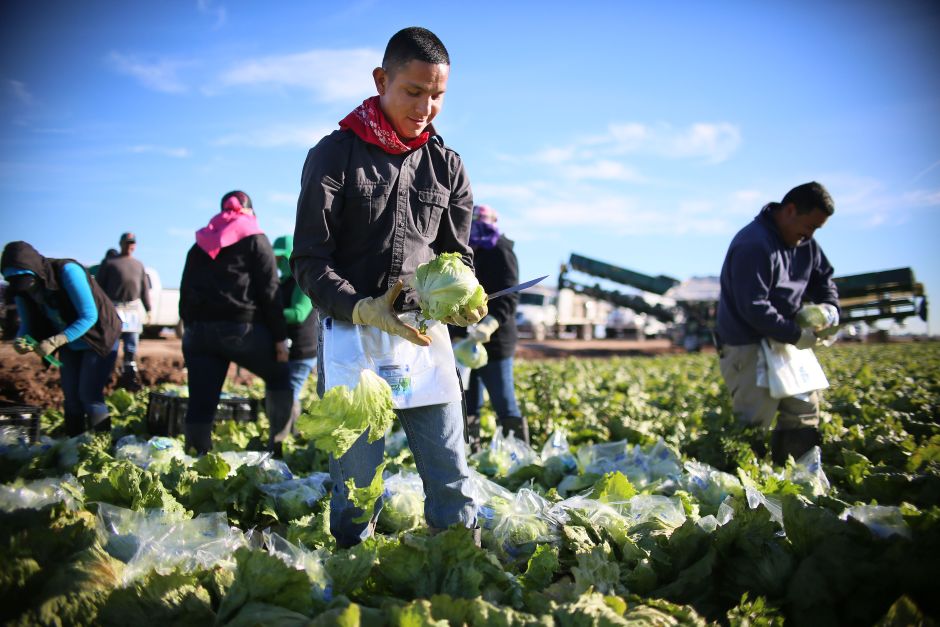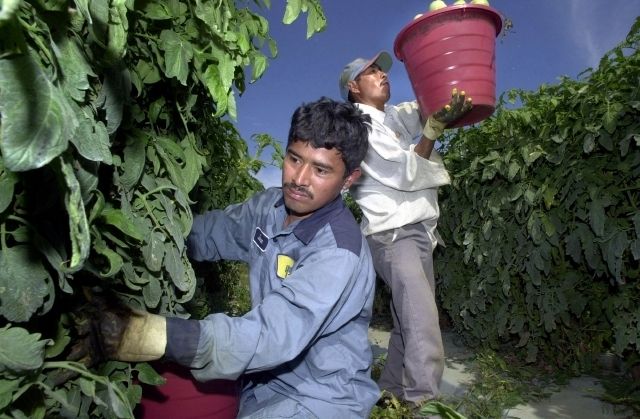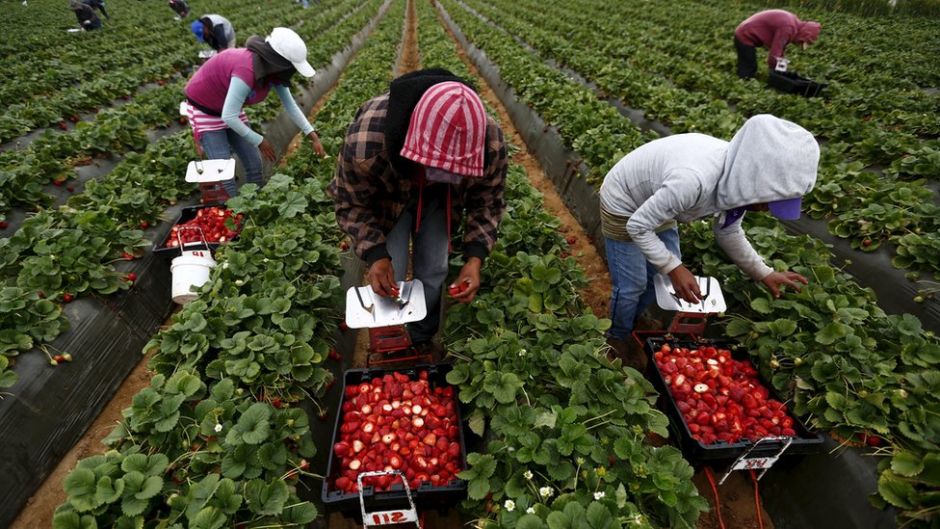Since Oswaldo arrived from Mexico 17 years ago he has worked in the fields of California. “It would be wonderful if I could have a work permit; and later, the residence. I could walk more calmly without such anguish, ”says this agricultural worker from the Salinas Valley in the north of the state.
A bill that was introduced at the end of October at the United States Congress would give 1.4 million undocumented farm workers, including Oswaldo, the opportunity to obtain a work permit, avoid deportation, and in a period of four to eight years, get permanent residence.
Carina, who has been working in the field for five years, says that this program will be of great benefit because it would not only help her but her 18-year-old son who was born in Mexico and who for not having papers is very limited to obtain student loans for University. “I was very pleased when I learned about this bill because, like me, there are many agricultural workers without documents who live with many limitations in many aspects,” he says.
H.R. 4916, Act of Modernization of the Agricultural Labor Force is the result of several months of negotiation between the United Farmers Union (UFW) and the main associations of farmers in the country.

The so-called peasant legalization program through blue cards was introduced in the House of Representatives on October 30 by California Democratic Congressman Zoe Lofgren and Washington Republican Congressman Dan Newhouse. Co-sponsors of the measure are California Democrats Salud Carbajal and Jimmy Panetta; and Republicans Marío Díaz Balart of Florida, Doug LaMalfa of California and Mike Simpson of Idaho.
Leydy Rangel, spokeswoman for the UFW Majority Foundation says that The bill would also benefit vineyard workers, stables, their children and spouses.
"Many of the Republican congressmen who support him have never backed immigration reform before," Rangel says.
If this program becomes law, it explains that authorize a five-year work permit to farm workers and their families; and would be renewed every five years.
To qualify for this law, workers must have worked in the field for at least 180 days, six months, in the last two years. "Which should be proven with paychecks," he notes. They must also pay a fee for the application, and prove they have no criminal record.
The options for residence would be two, after having obtained the work permit: When the farm worker has been working in agriculture for more than ten years, he may apply for residence four years after obtaining a work permit under the new law; while if they have less than ten years of working in the field, they must wait eight years before applying for residence.
Rangel says the bill is moving fast in the House of Representatives, and they hope to take it to a plenary vote in December.
At the federal level, it is estimated that there are 2.4 million farmers, half of them undocumented. “In California we would be talking about 200,000 paperless workers", mentions.
The president of the Union of Farmers, Teresa Romero, and the executive director of the fUFW, Diana Tellefson Torres, says they have built a compromise on issues that have previously prevented Congress from passing agricultural legislation and other immigration reforms.
“The UFW and the UFW Foundation are excited about this legislation that honors all farm workers who feed the United States by creating a reform for the undocumented to apply for legal status; and have a step to obtain citizenship in the future without compromising their existing salaries and legal protections, ”they said in a statement.

The president of the organization of agricultural producers of California, Western Growers, Tom Nassif, affirms that the Act of Modernization of the Workforce of Agriculture attends two critical needs of agriculture: retain experienced workers and ensure a reliable flow of guest workers.
"Much better, after a transition period, the measure includes E-Verify for farmworkers, and demonstrates our industry's commitment to a long-term work solution," he says.
He adds that this bill is only the beginning of a process that requires the support of both political parties and the president.
The measure is supported by 24 Democrats and 20 Republicans.
It would also improve the H-2A visa program for agriculture to provide more flexibility to employers and ensure critical protections for foreign employees.
"This comprehensive legislation contains key elements to address the needs of California employers and agricultural employees across the nation. ”says Jamie Johansson, president of the California Farmers Bureau, (CFBF).
He adds that people who work on farms and ranches are valuable members of rural communities. "Your contributions to our communities and our food system must be recognized by allowing them to change to obtain legal status," he says.
And he points out that a pilot program contemplated for H-2A workers will allow them to move from ranch to ranch to work, an option that California producers have long sought. And for the first time, this measure will provide guest worker visas for annual stables and nursery operations.
Although most associations representing farmers in the country, they are in favor. Some, such as the American Farm Bureau Federation, left the negotiations arguing that there is room to improve it and ensure that future workers' needs are met.
Eugenia González, an Oaxacan who has been working in the field in the Delano area for eight years, has had to lobby for this measure to be approved. “It would be amazing if they passed this law. Peasants deserve residence. They have earned it and they deserve it because the work of the field is not easy because we see that there are no targets working in the fields. They don't last, ”says this agricultural worker.








